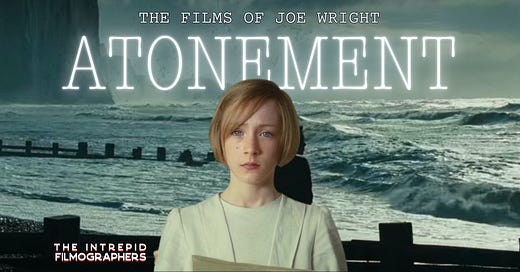Our Joe Wright miniseries continues with Atonement (2007), his sweeping and emotionally devastating follow-up to Pride & Prejudice. Reuniting with Keira Knightley and bringing in James McAvoy, Saoirse Ronan, and Vanessa Redgrave, Wright adapts Ian McEwan’s acclaimed novel into a visually lush and stylistically bold portrait of love, guilt, war, and the stories we tell ourselves.
In this episode, Bobby Shortle and Nick Rocco Scalia break down the film’s shifting timelines, theatrical flourishes, and that now-iconic Dunkirk tracking shot. They also unpack the film’s controversial twist, the role of perspective in both narrative and filmmaking, and how Atonement walks the line between emotional sincerity and self-aware artifice.
Is Atonement one of the best films of the 2000s—or just an impressive exercise in cinematic style? We dig in.
Topics Covered:
Joe Wright’s escalation in visual ambition after Pride & Prejudice
Saoirse Ronan’s breakout performance and complex character
Keira Knightley and James McAvoy’s chemistry and constraints
The Dunkirk tracking shot: cinematic brilliance or showy excess?
The film’s twist ending and what it says about guilt and storytelling
Atonement as meta-narrative and the question of "perspective"
How it fits into 2007’s all-time-great movie year
Podcast Chapter Timecodes:
00:20 – Kicking off Atonement: Initial impressions and 2007 context
08:50 – Performances: Saoirse Ronan, McAvoy, Knightley, and more
18:55 – Structure & timeline shifts: three acts, three perspectives
27:20 – The iconic Dunkirk tracking shot and visual ambition
36:10 – Perspective vs. reality: is Briony the ultimate unreliable narrator?
45:15 – Exploring the twist ending and the concept of atonement
54:30 – Final thoughts: masterwork, misfire, or somewhere in between?













Share this post